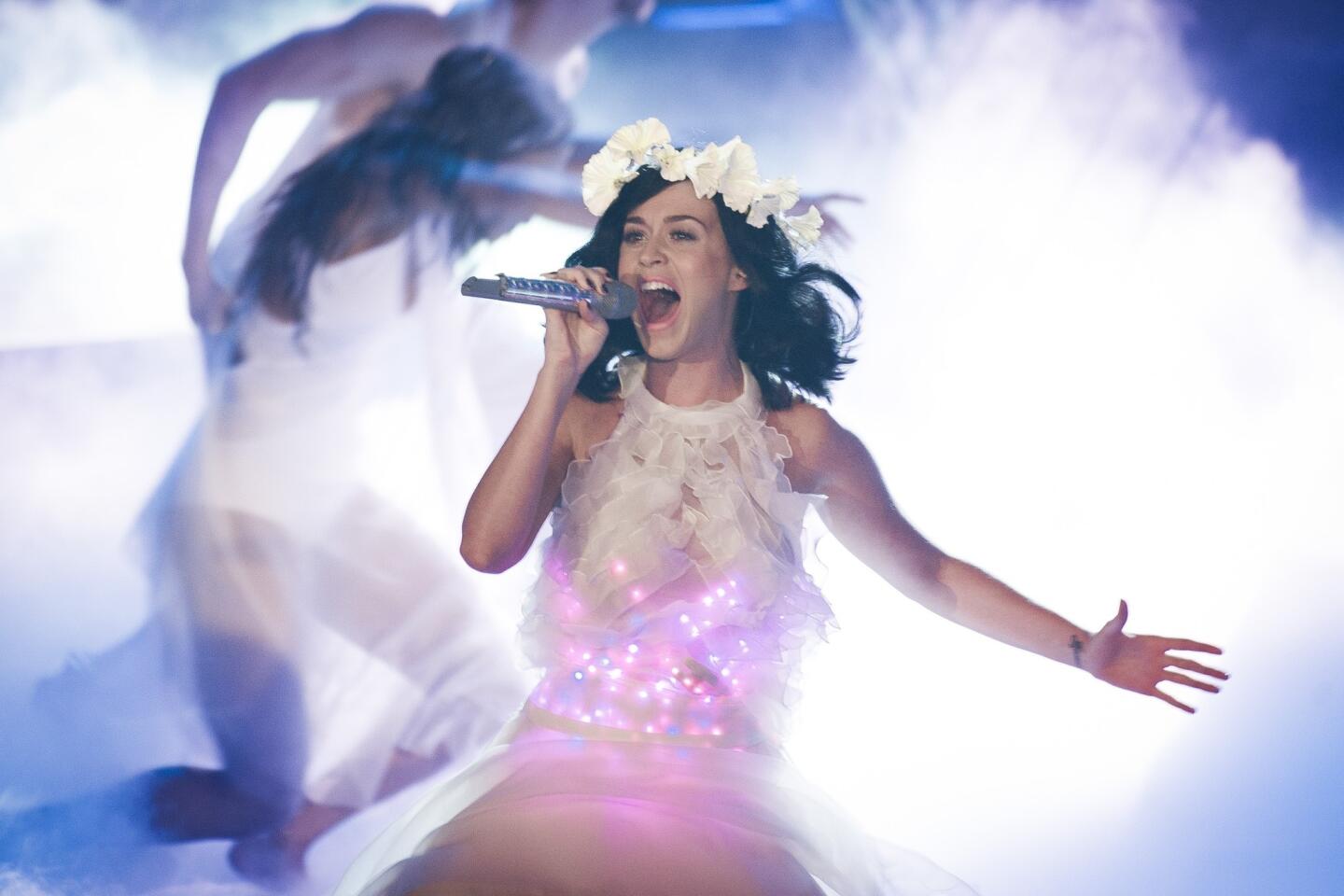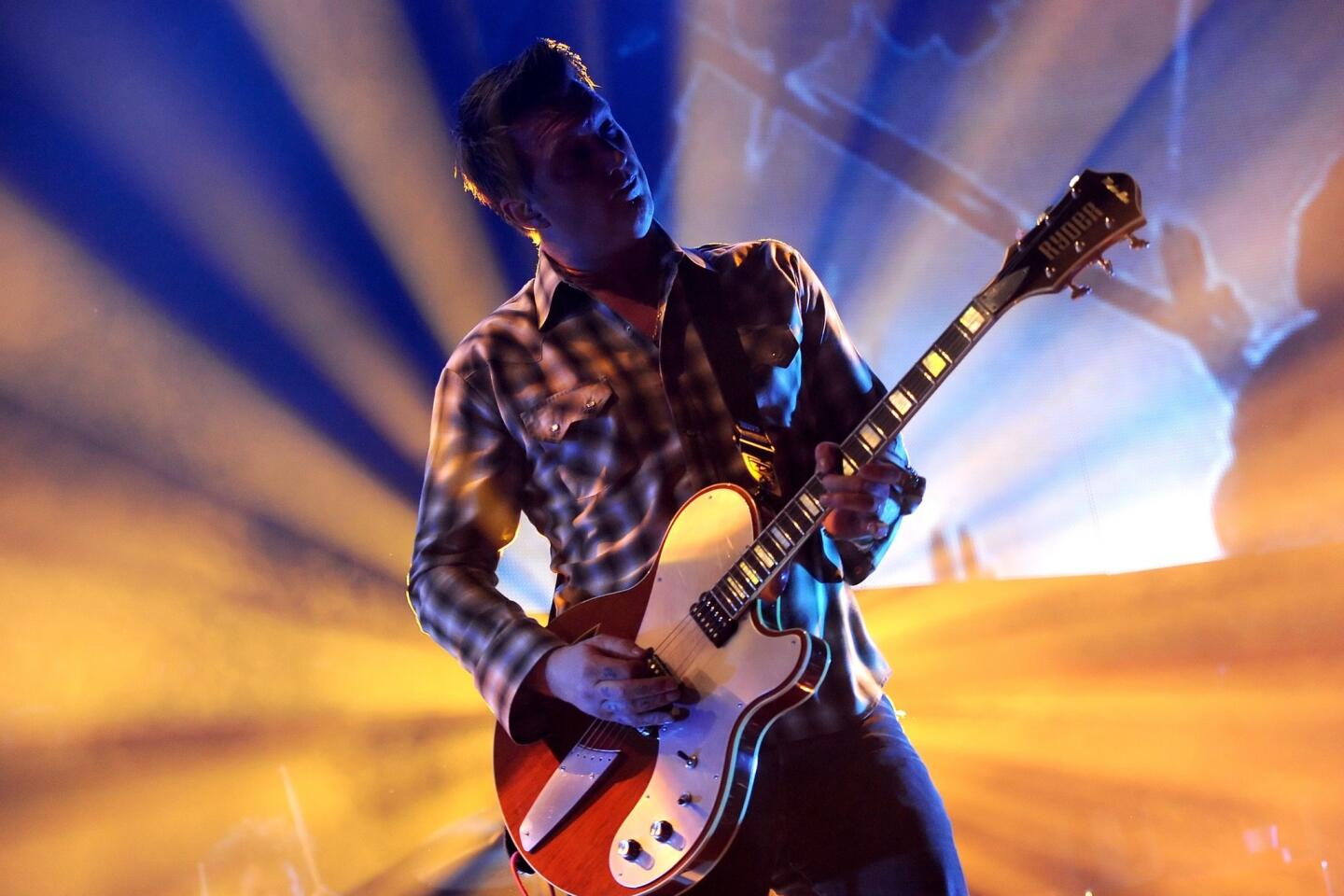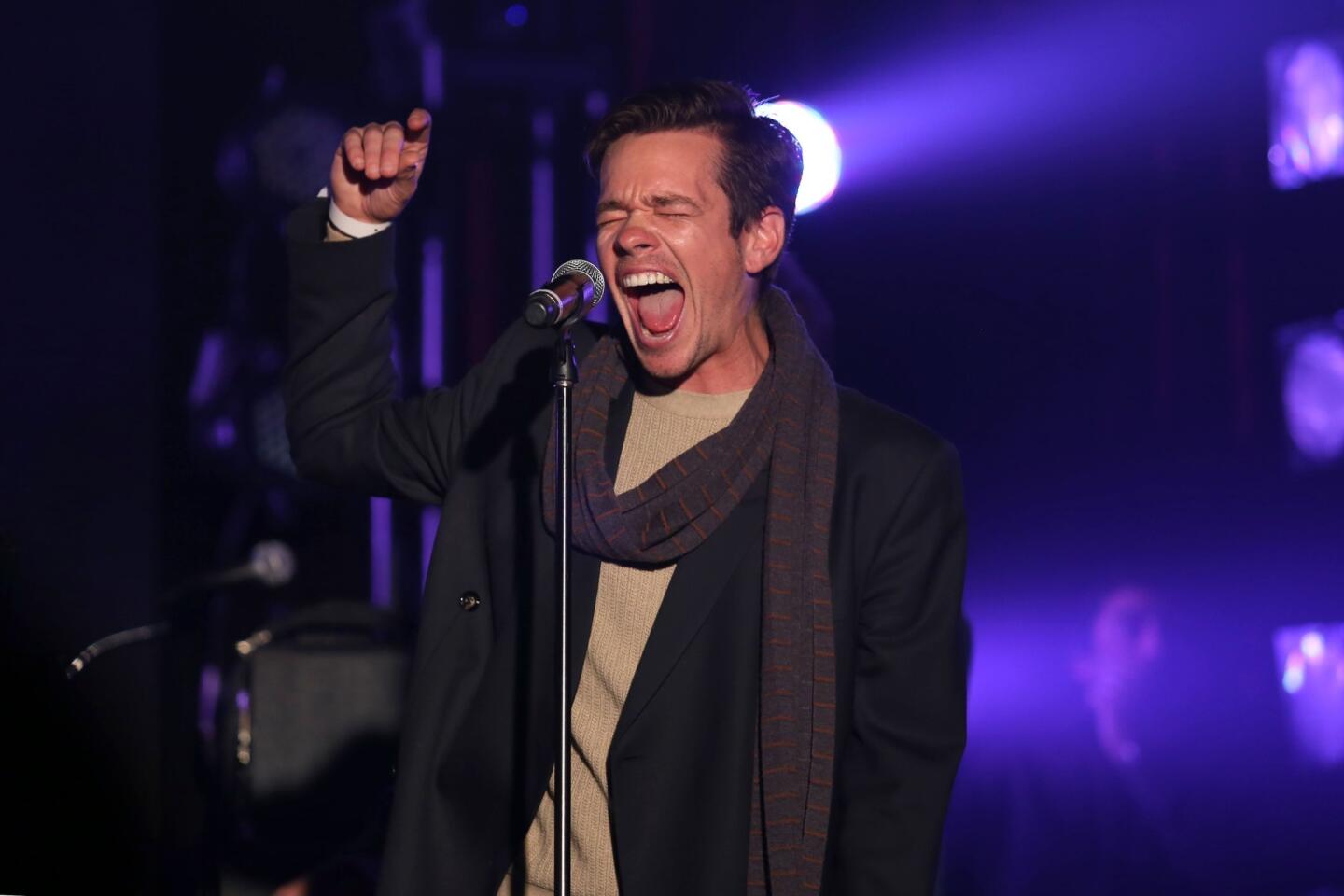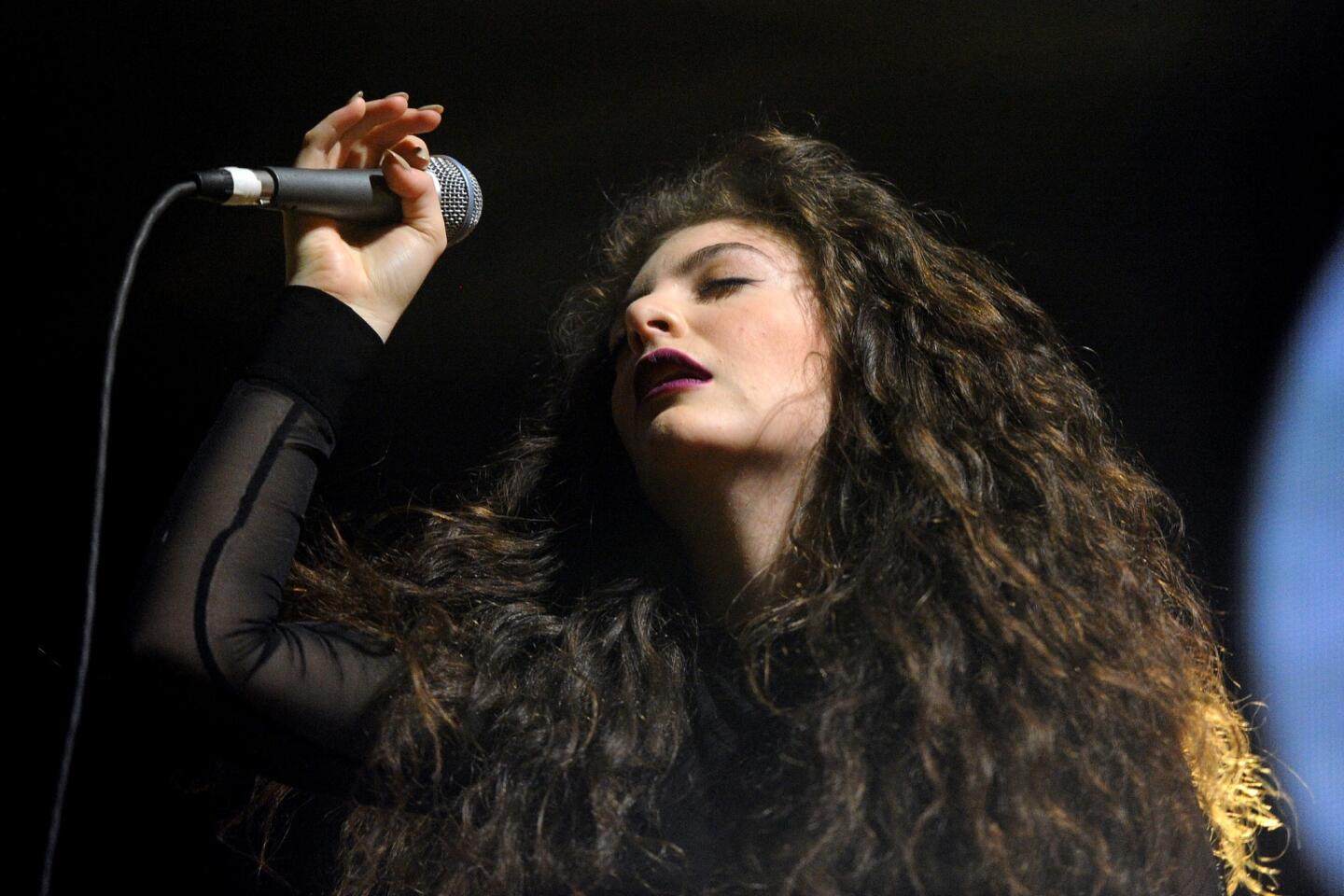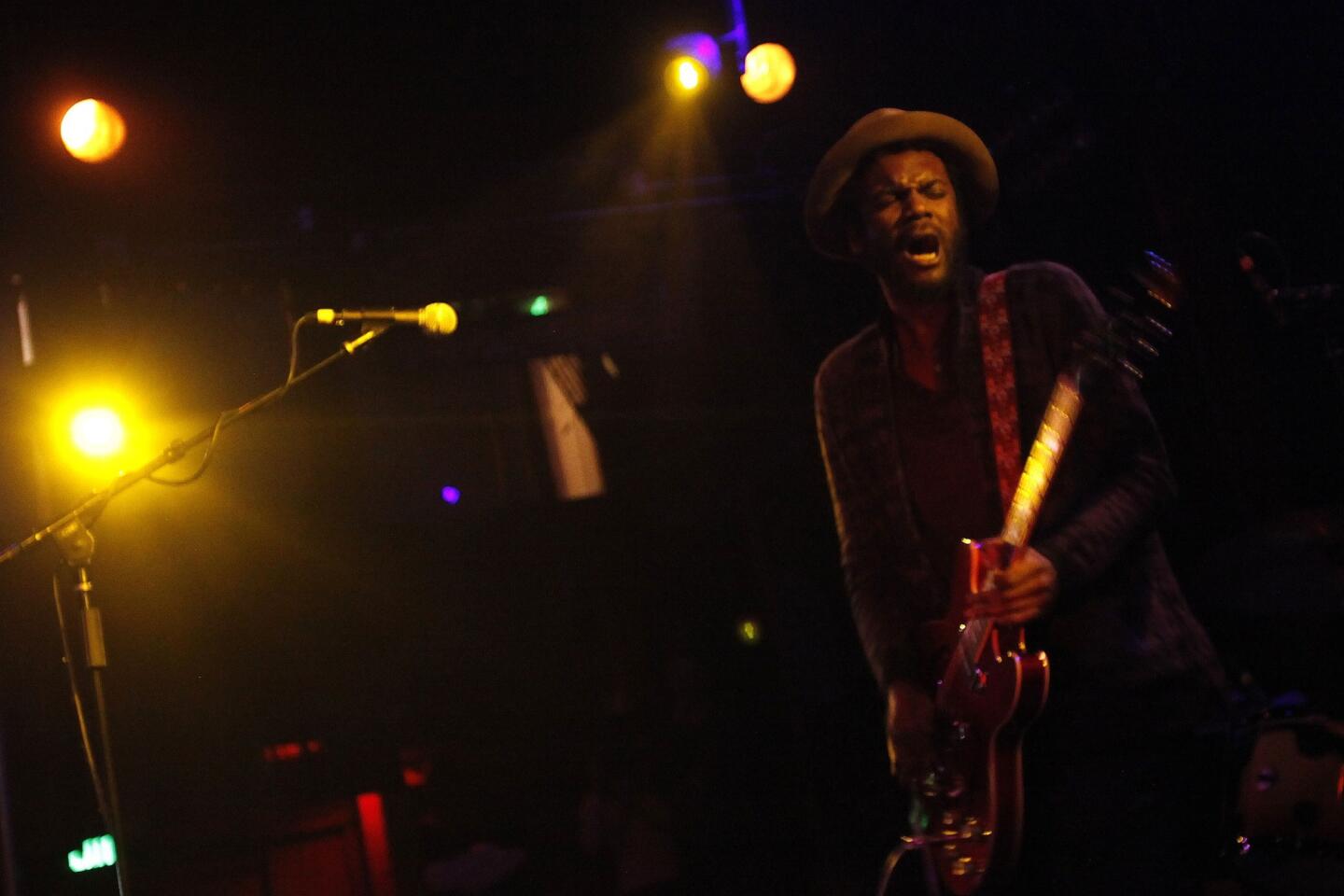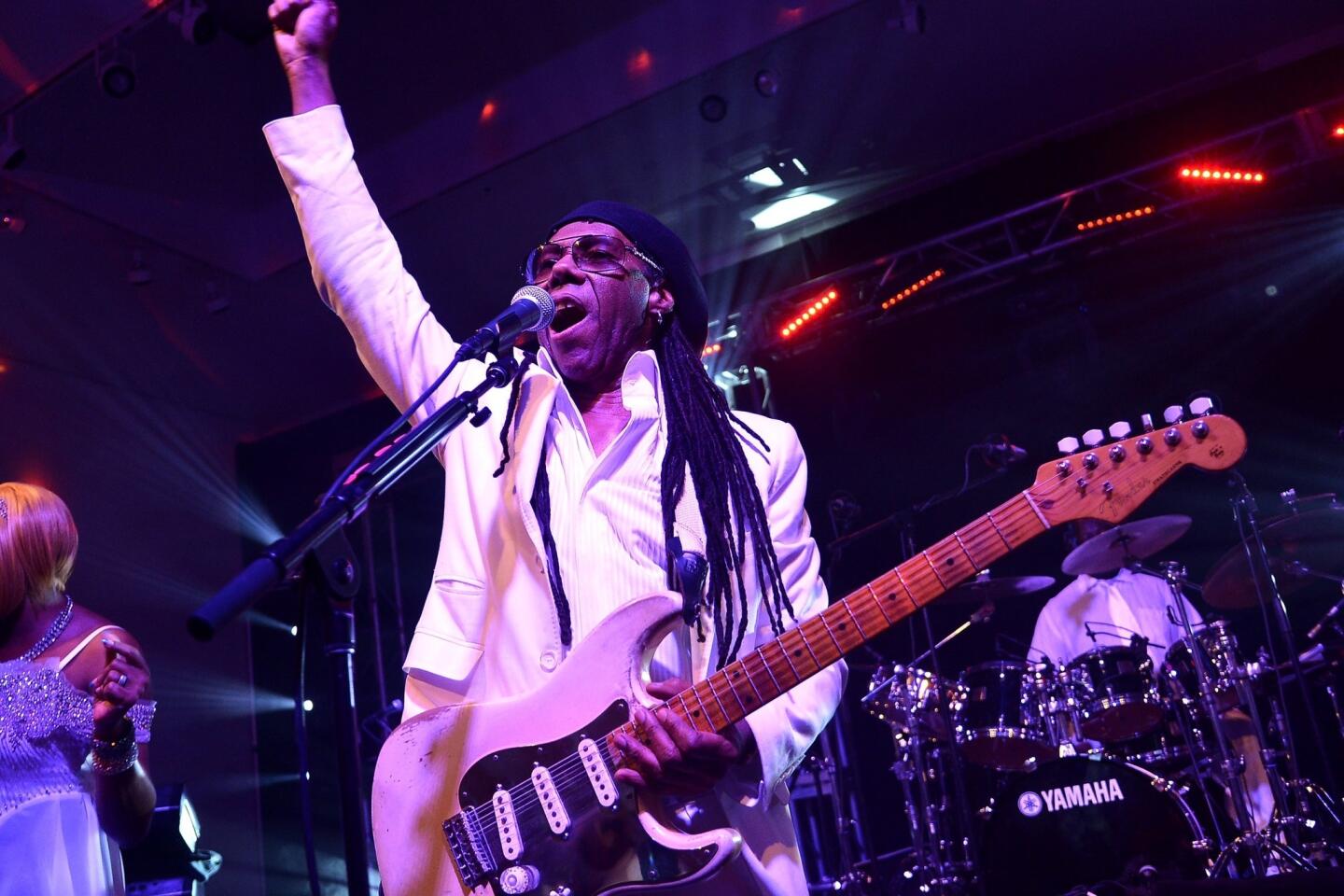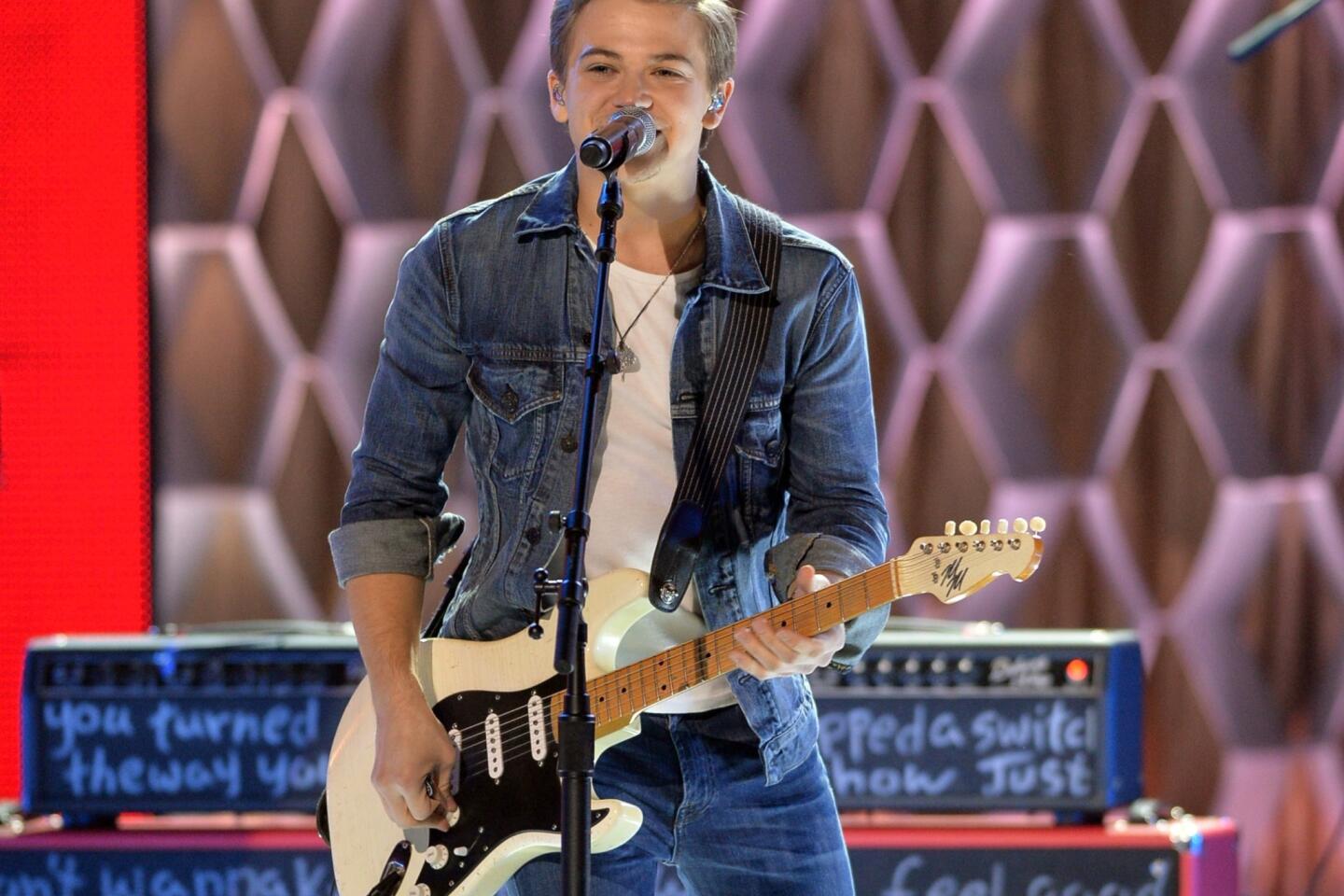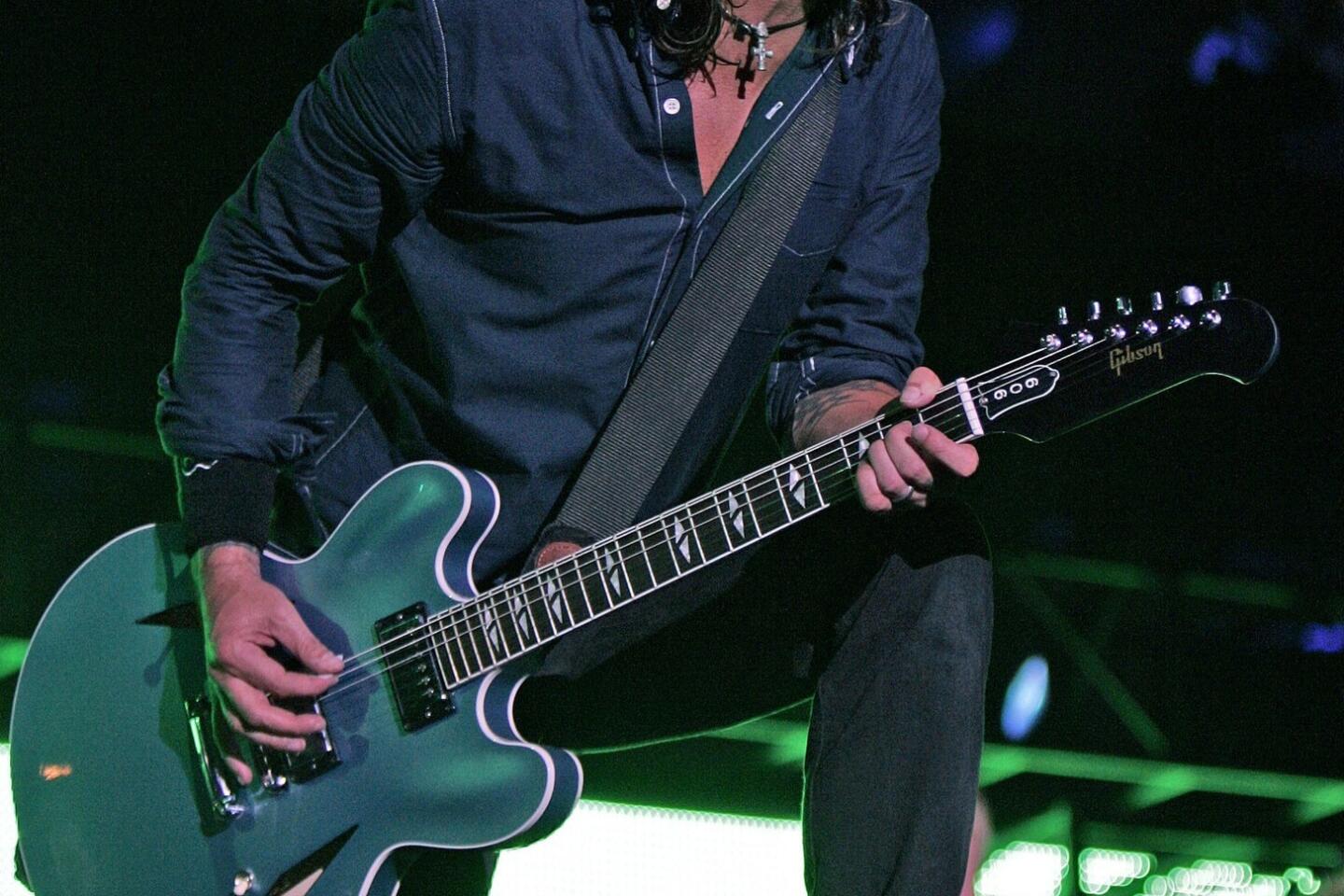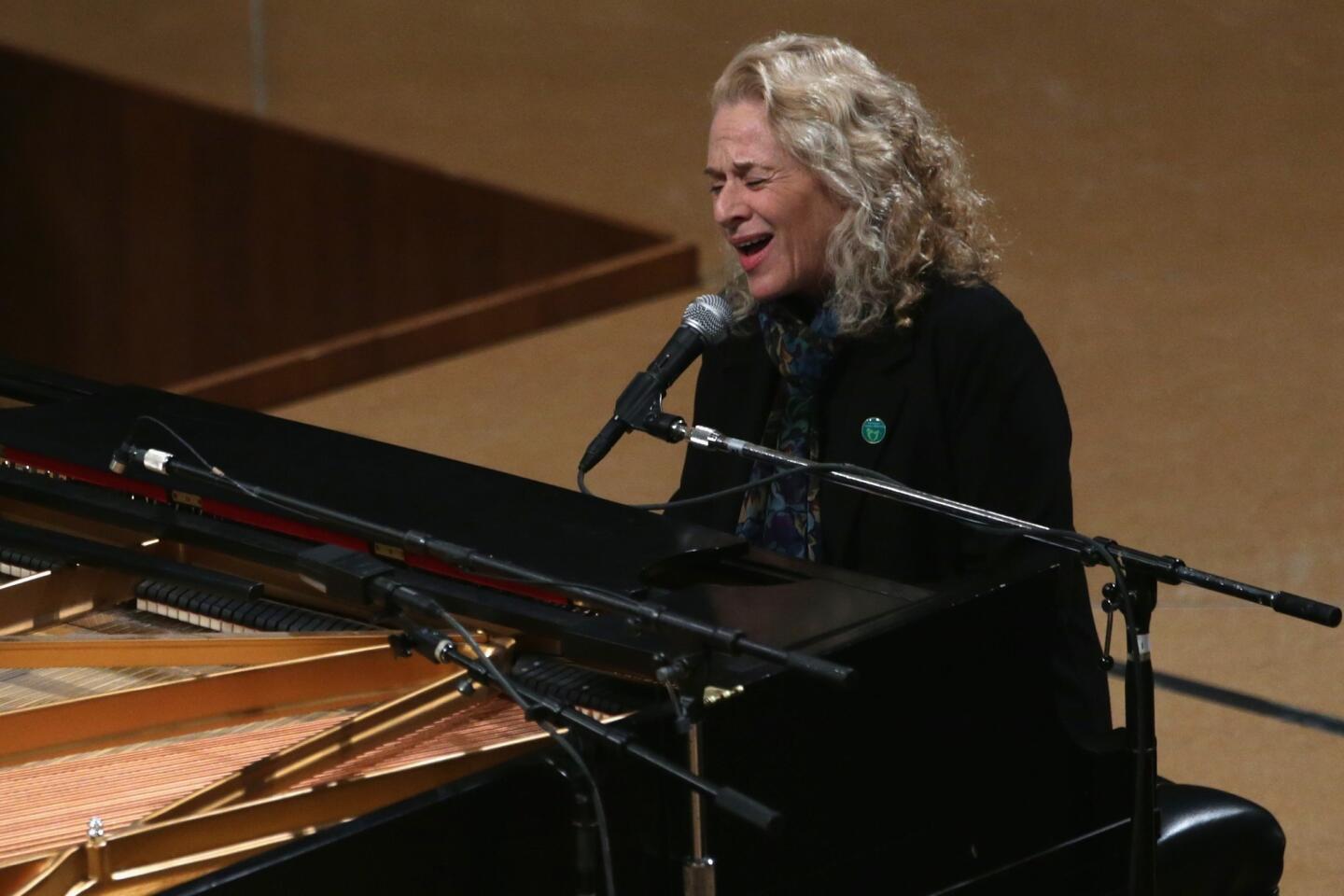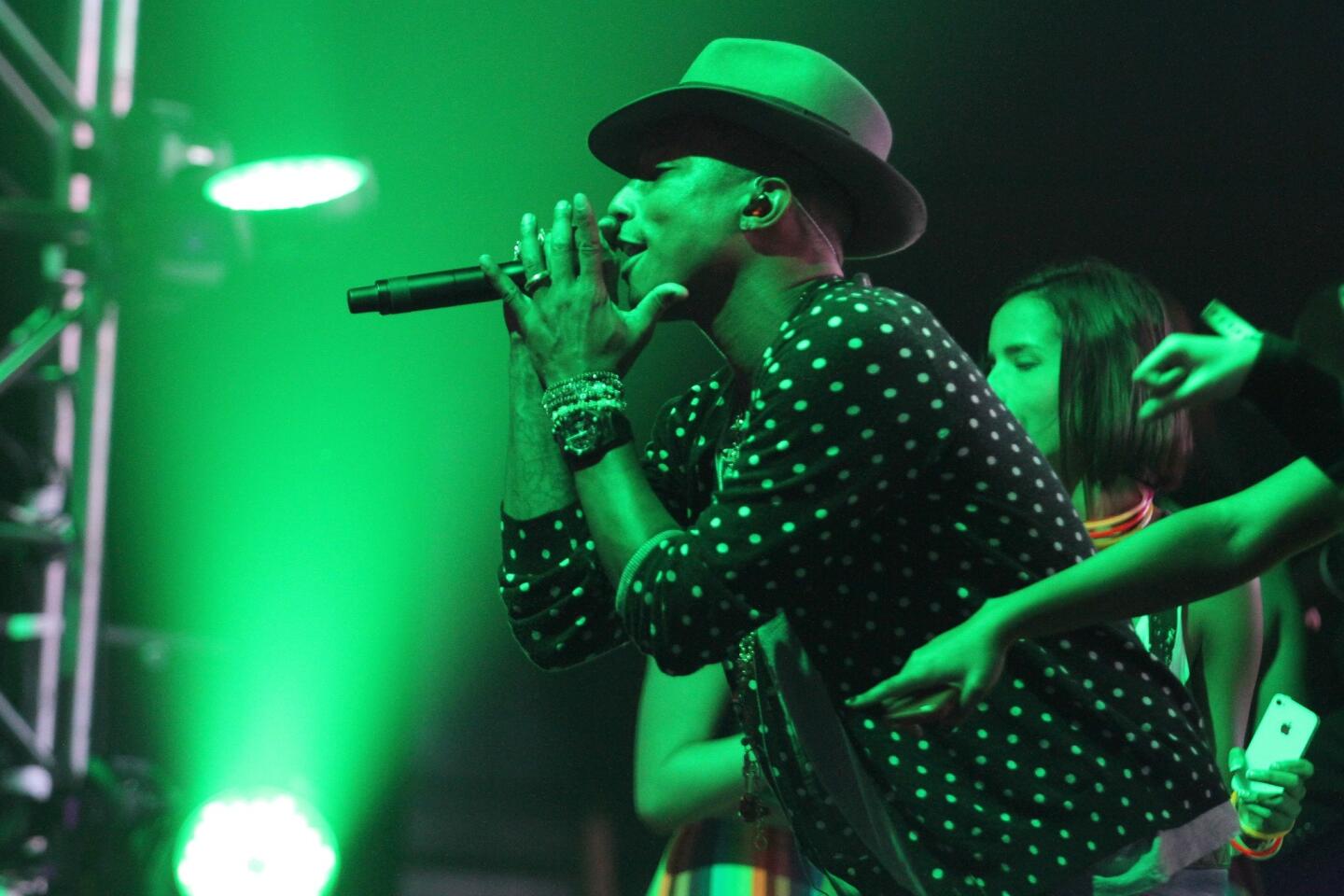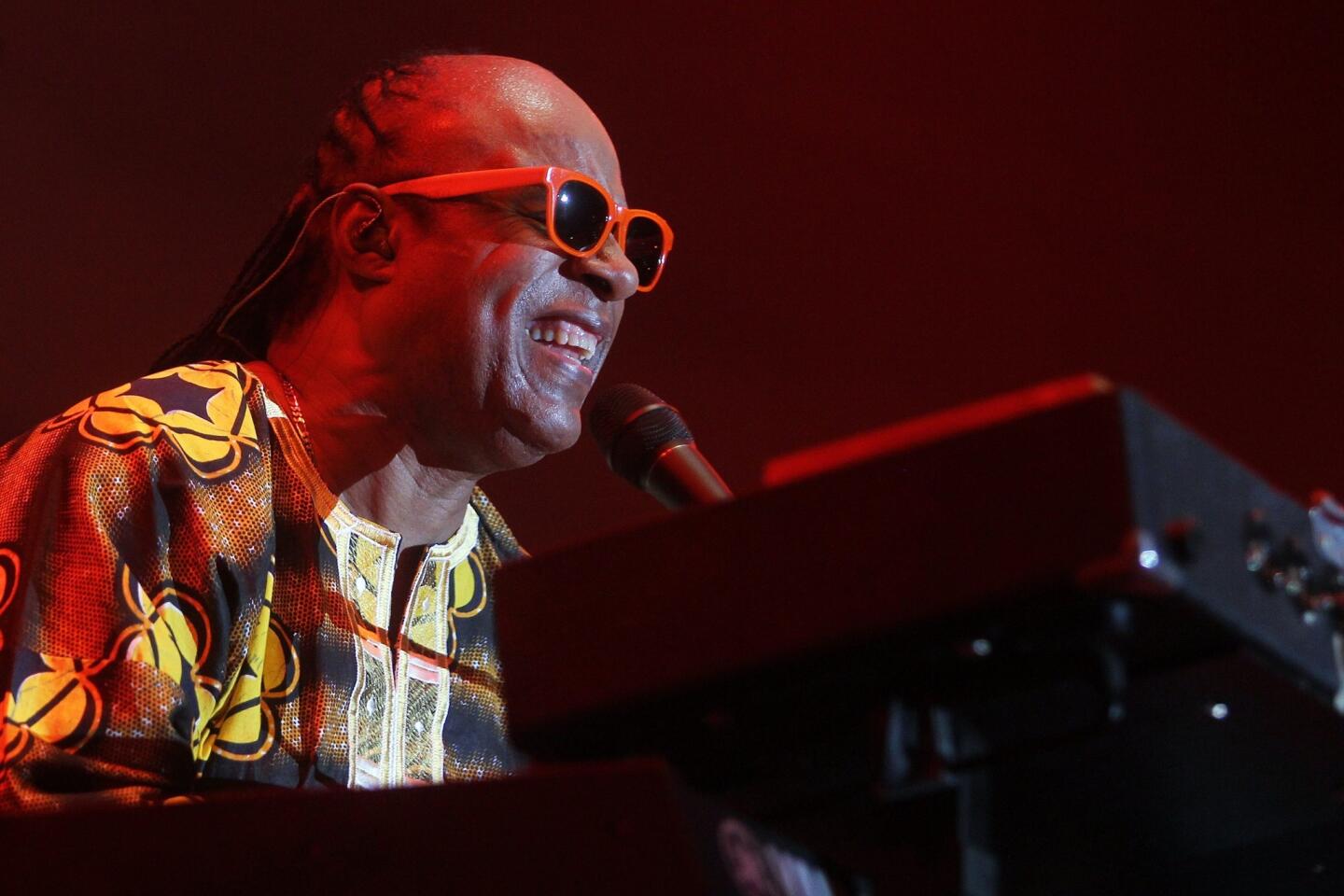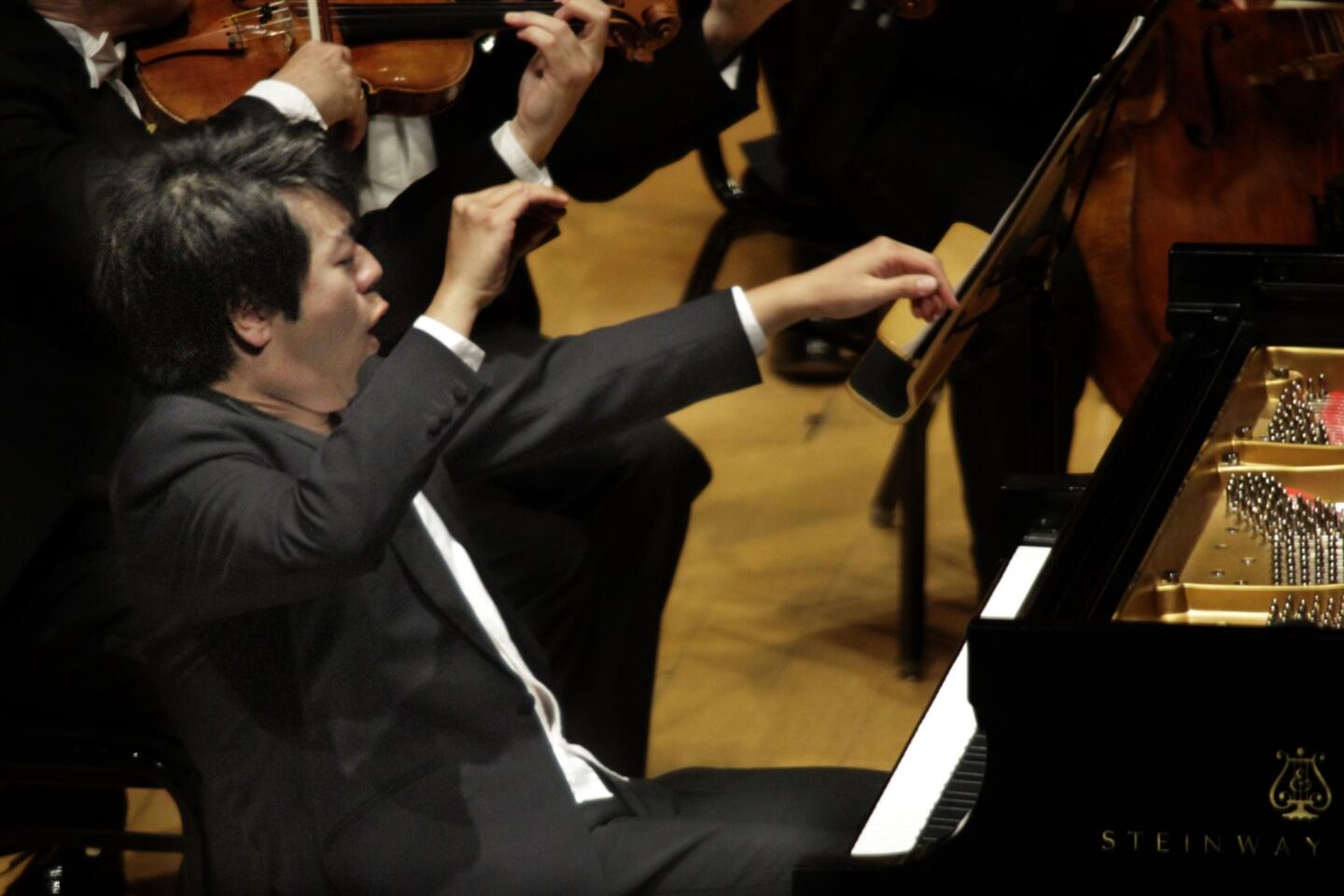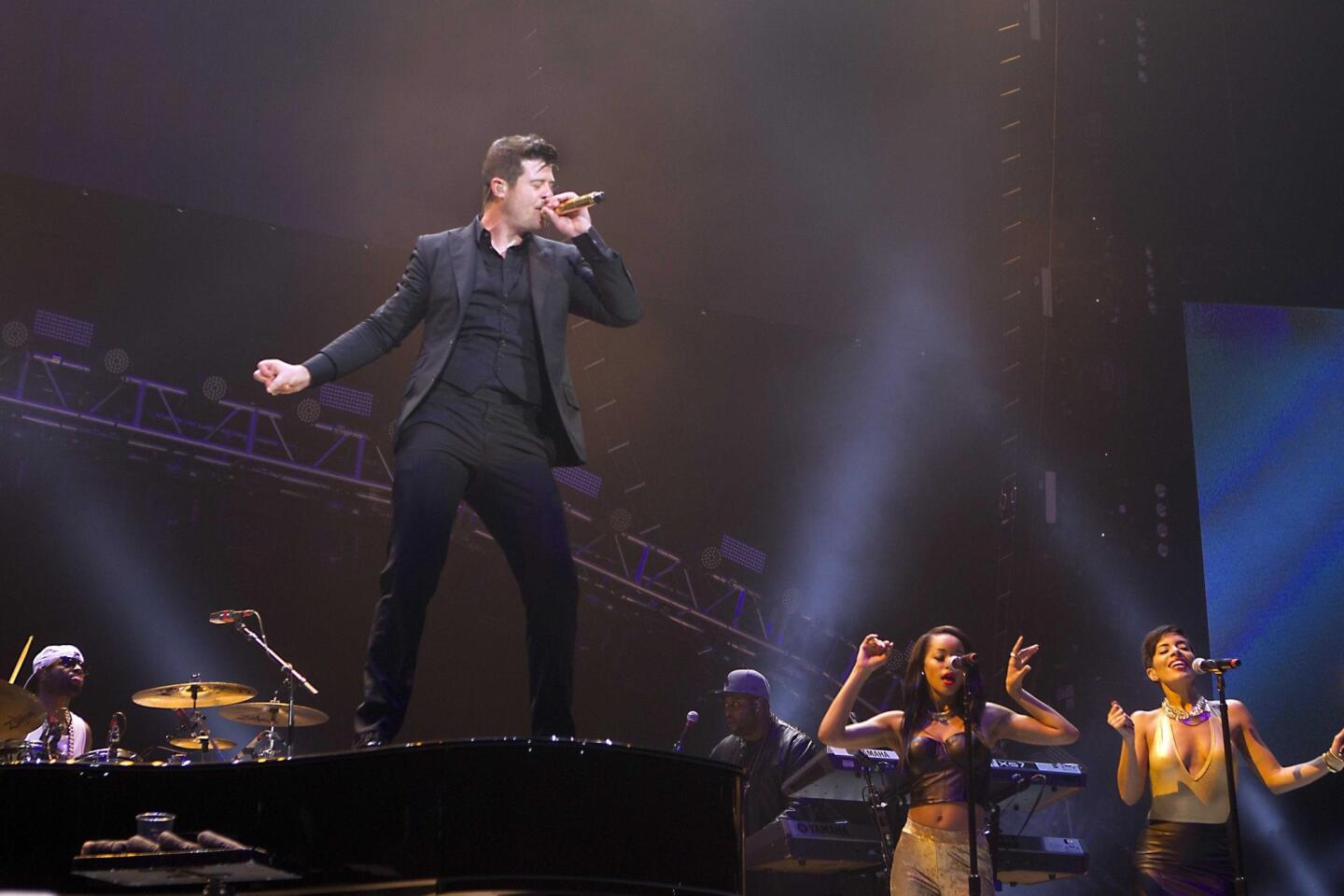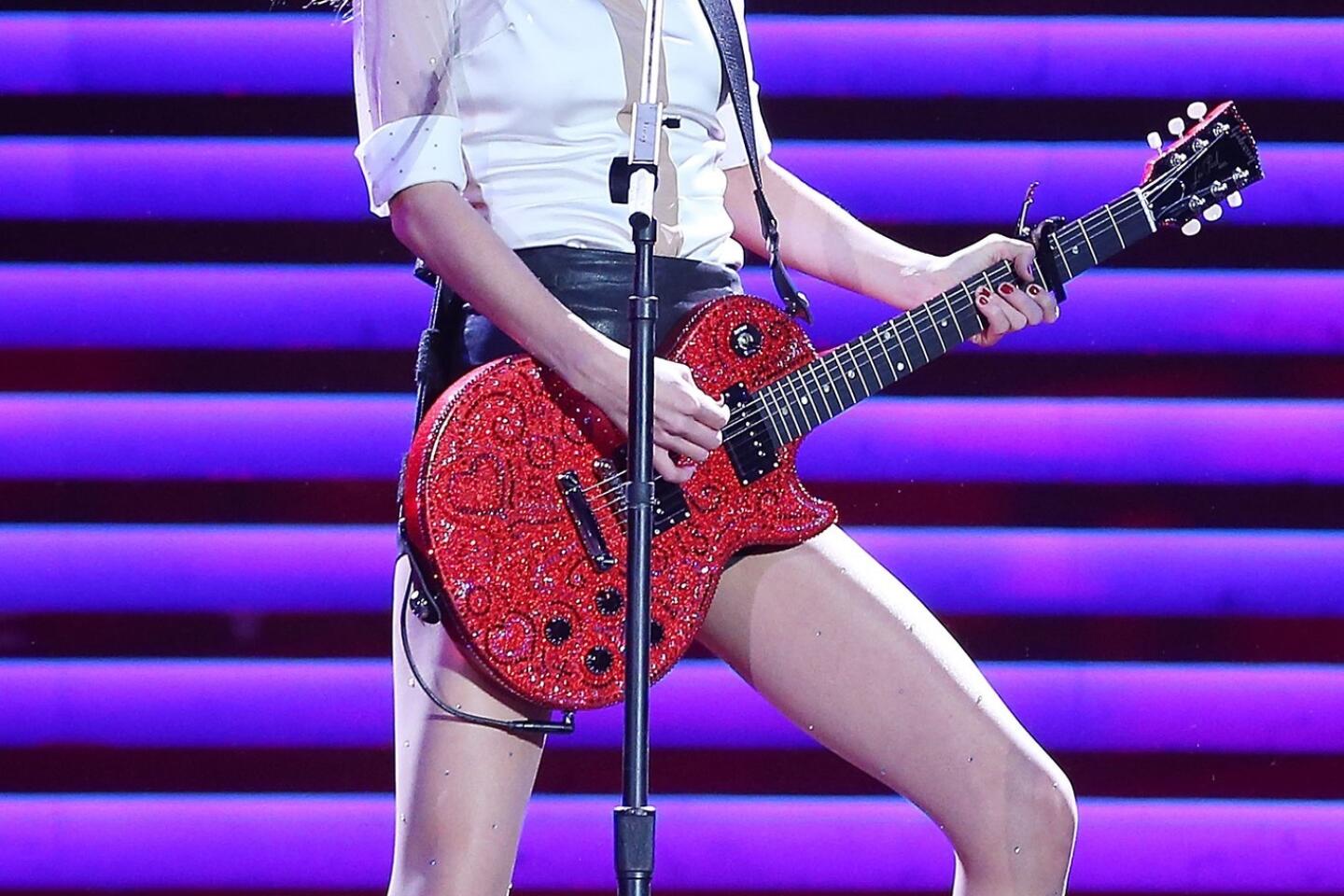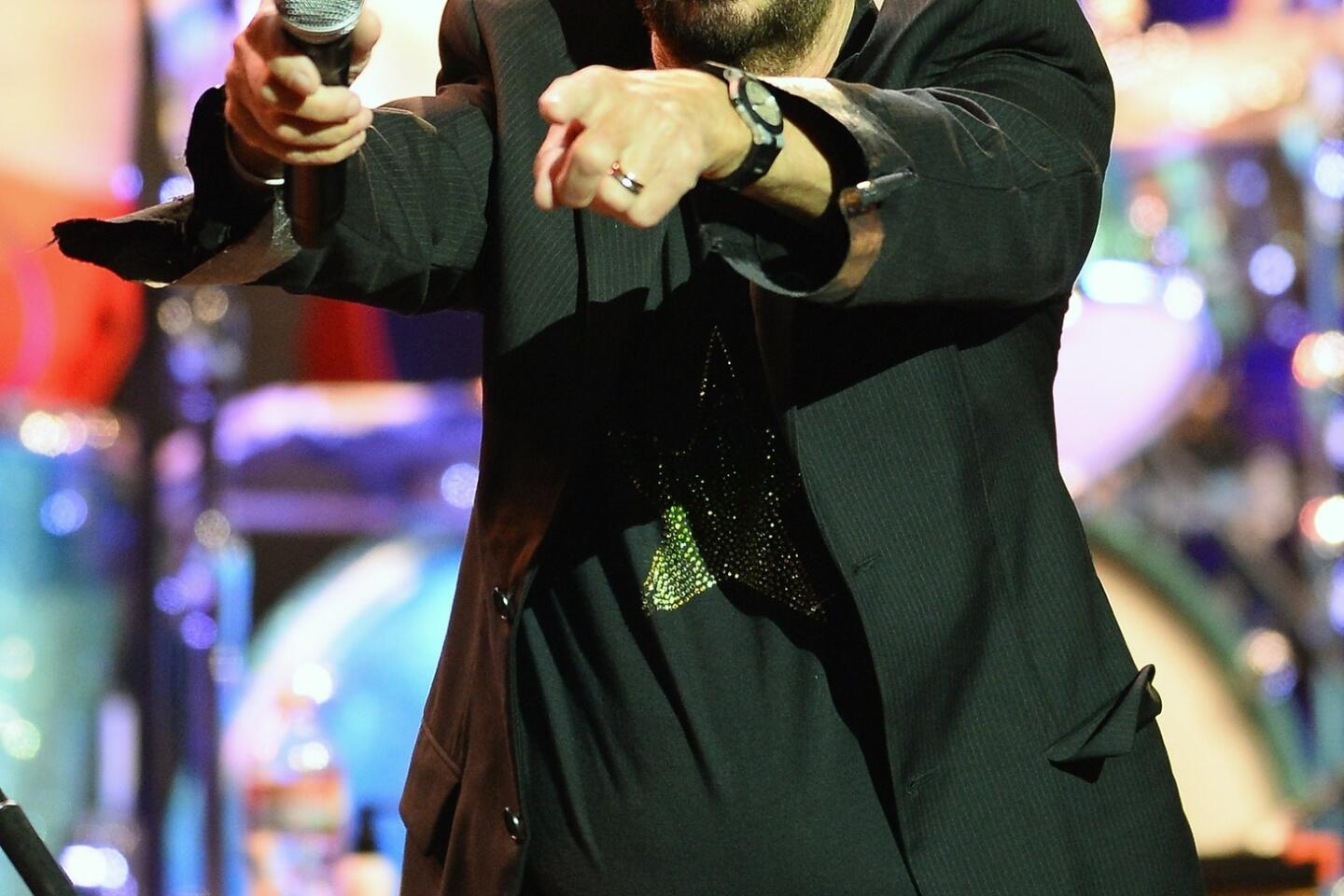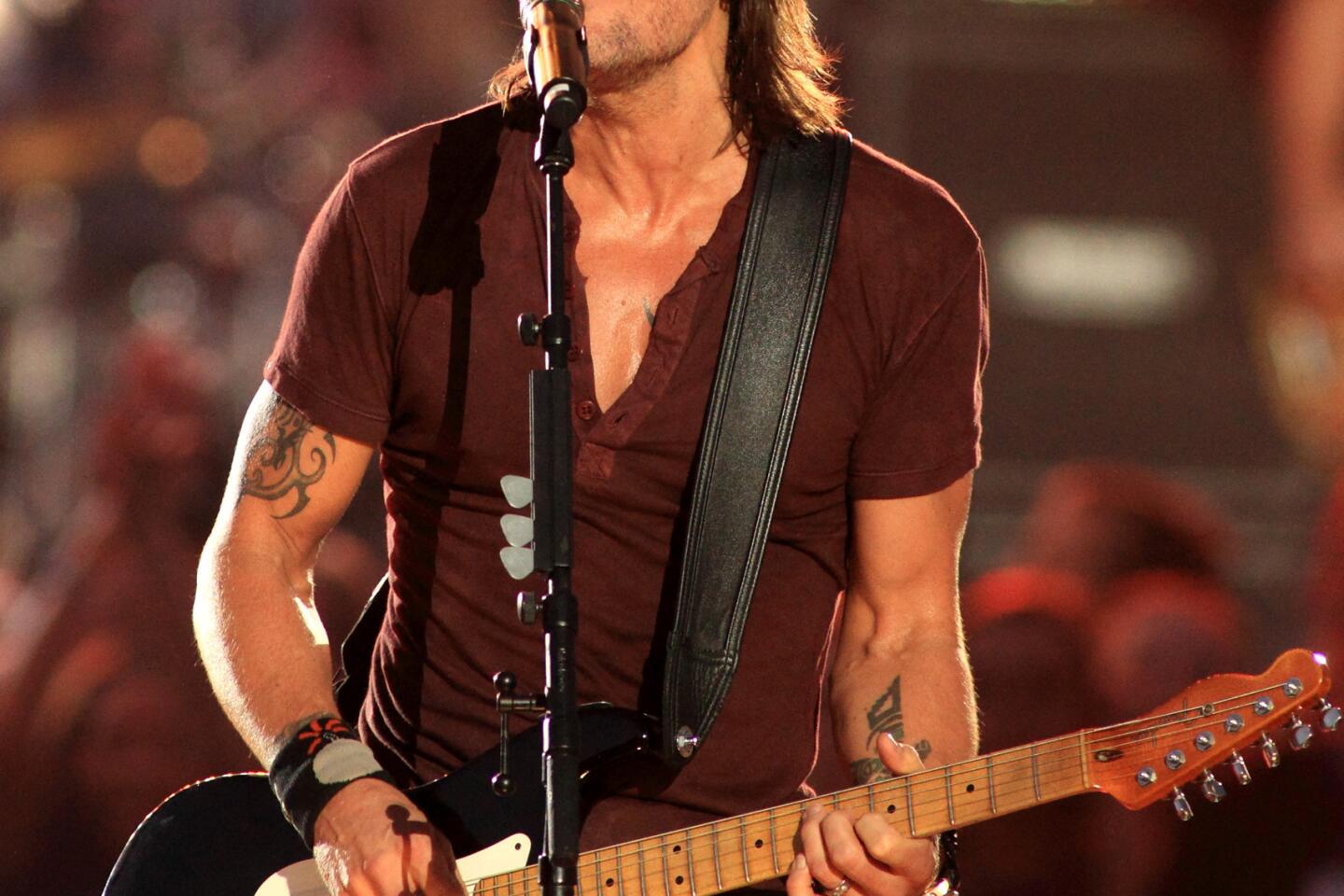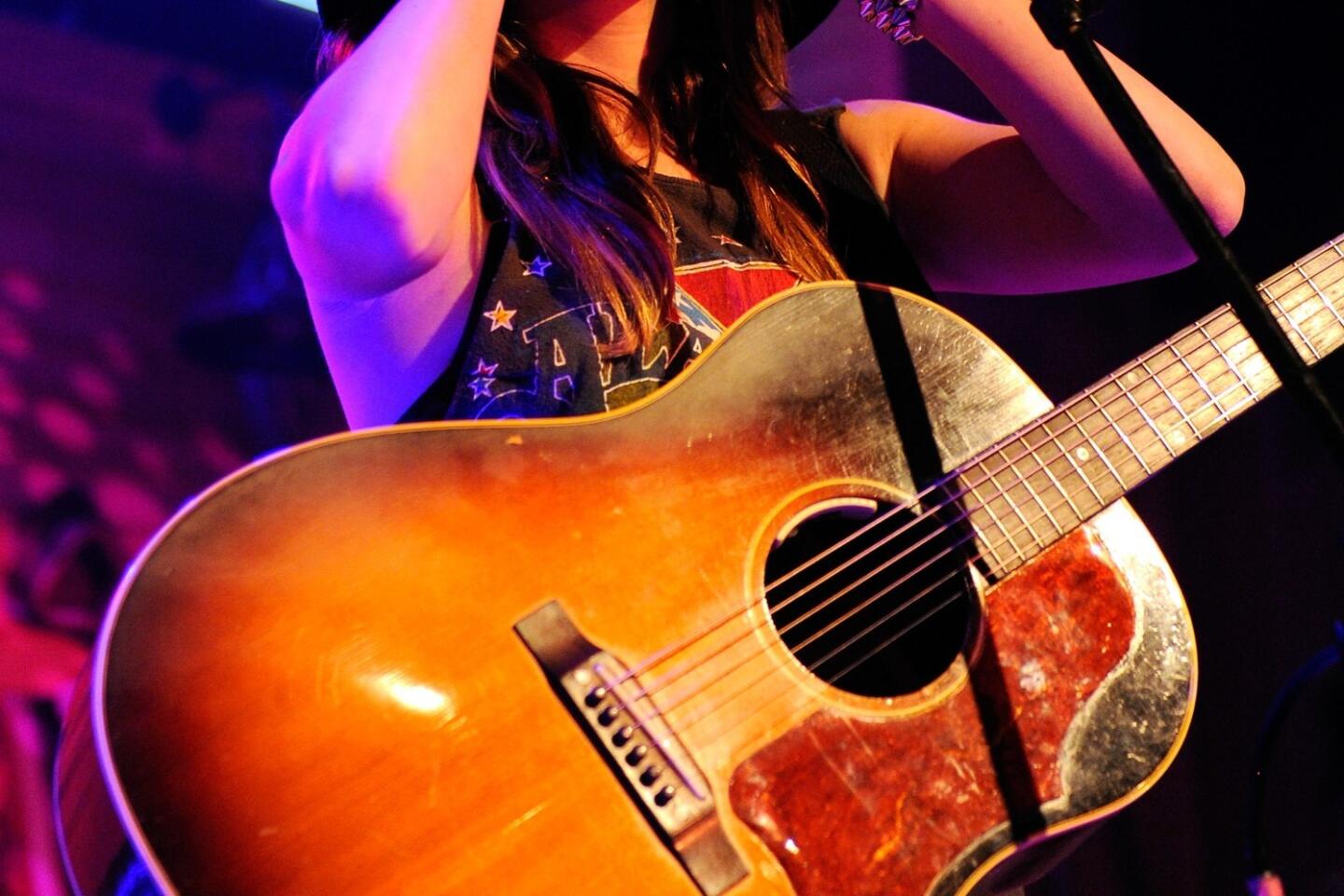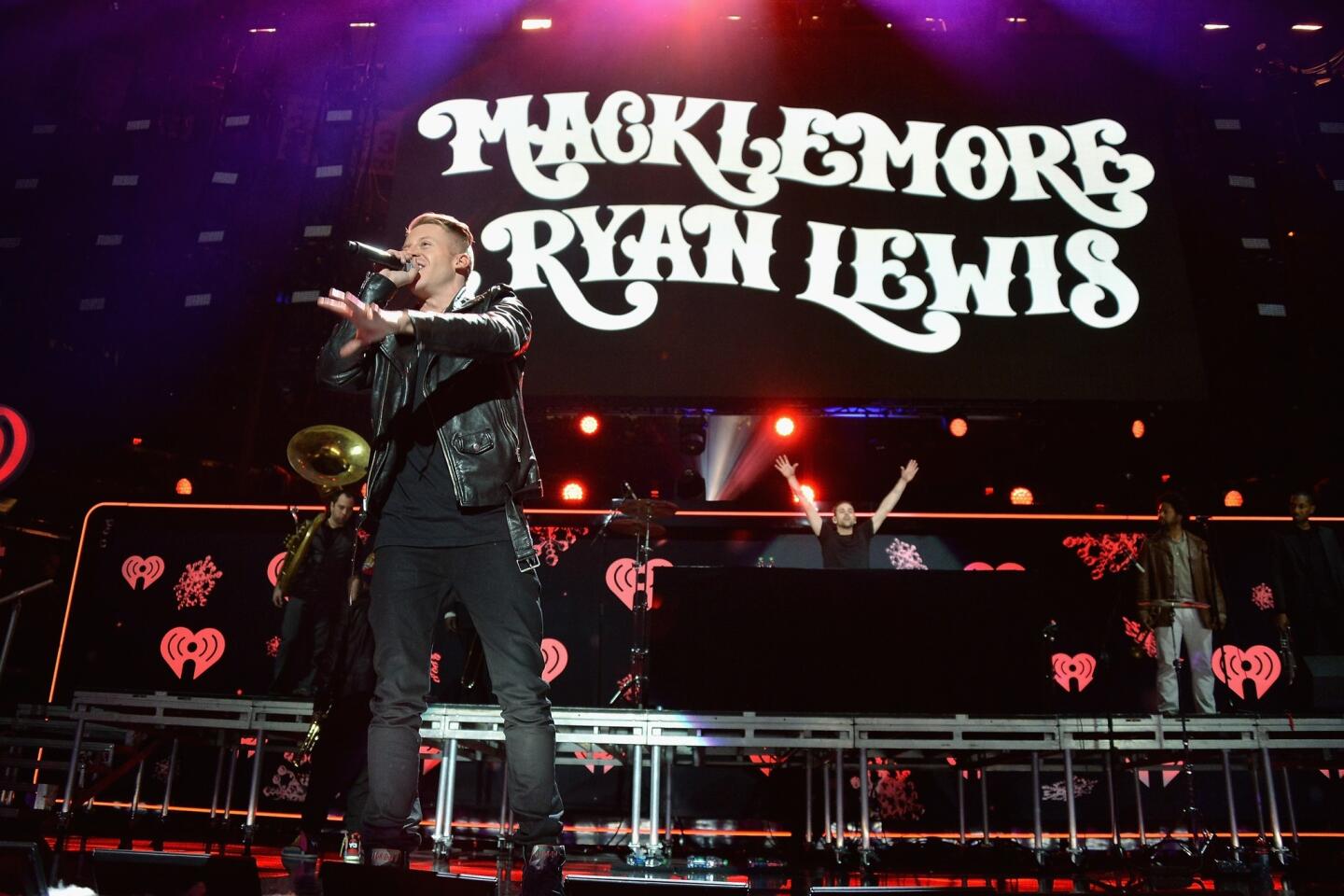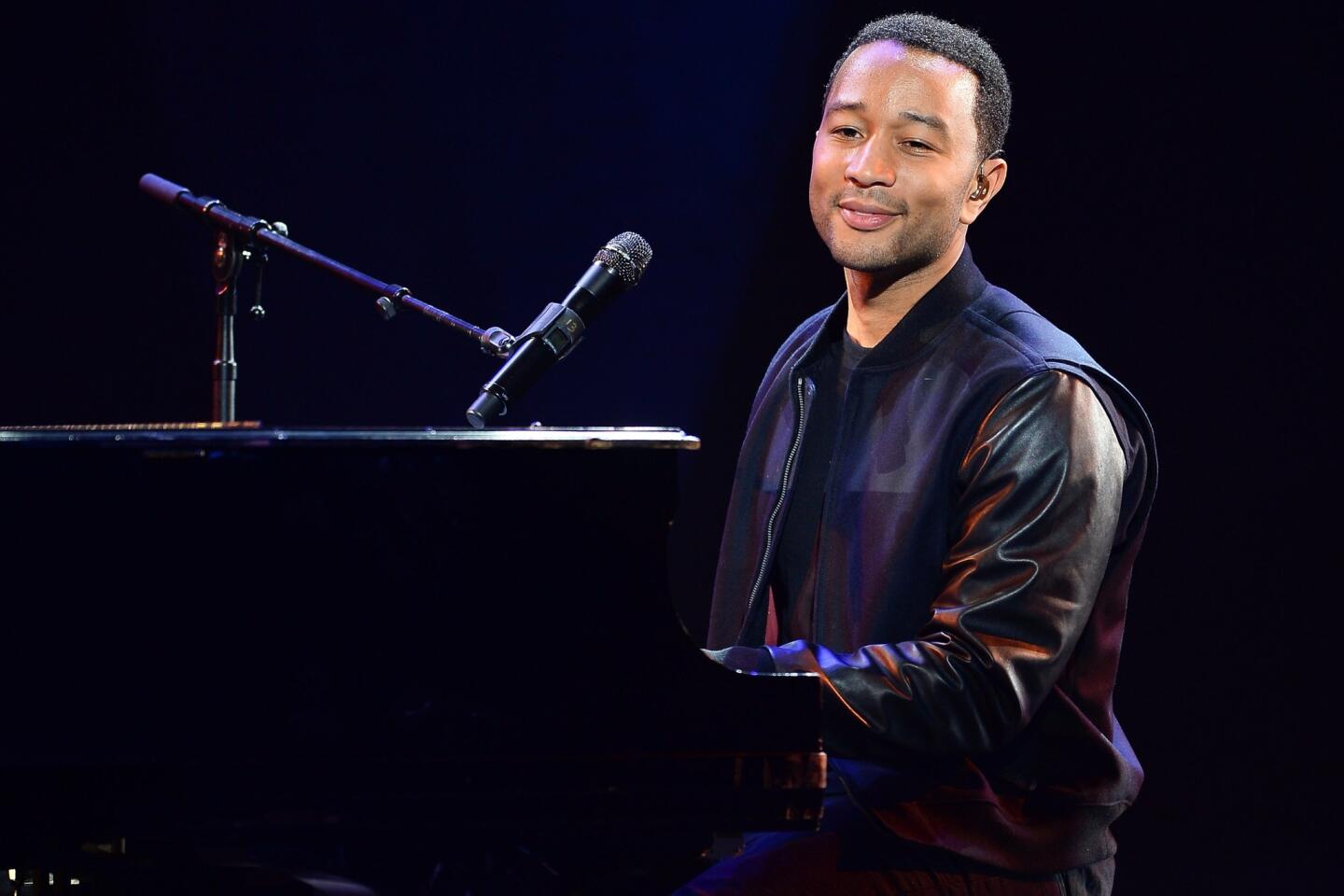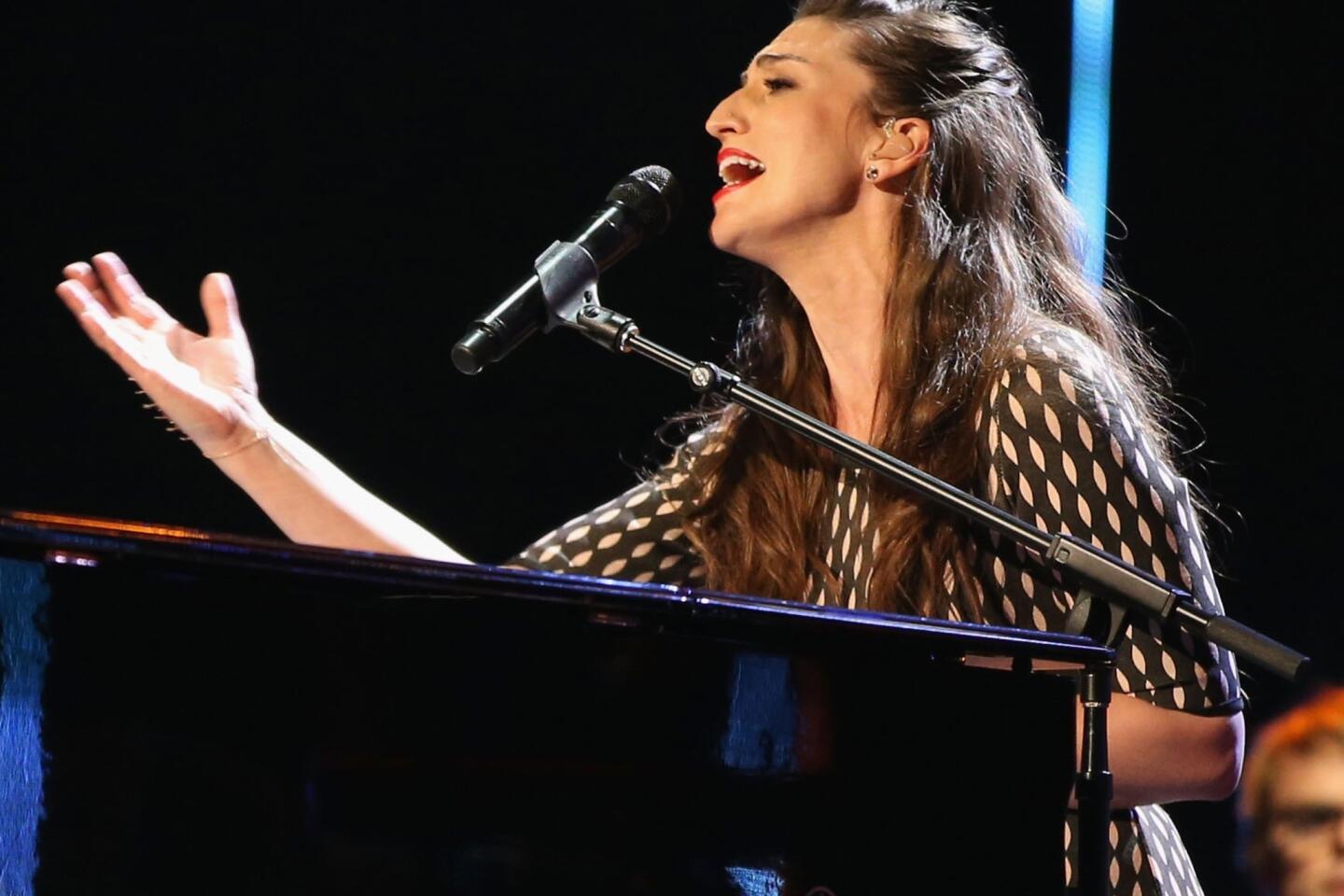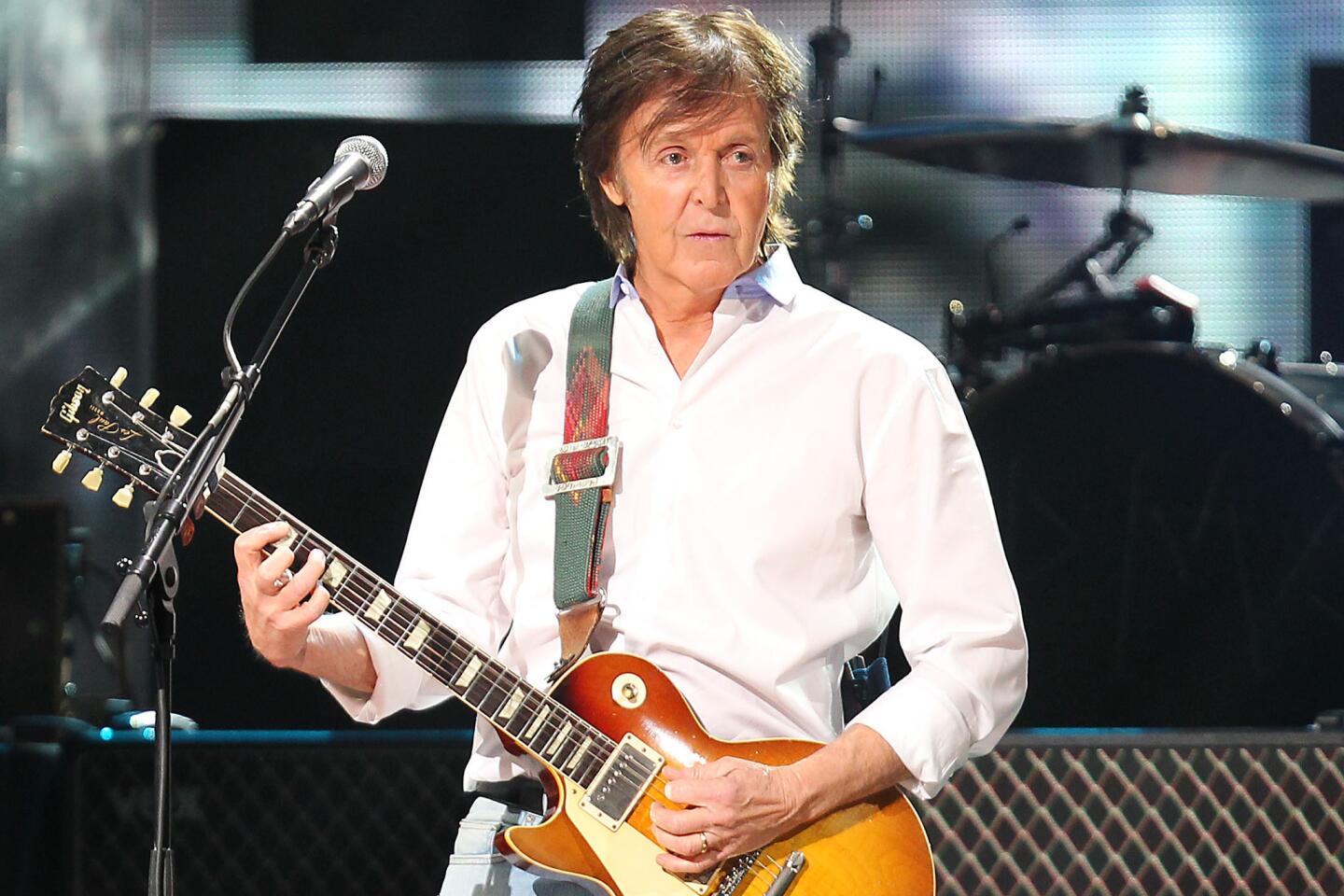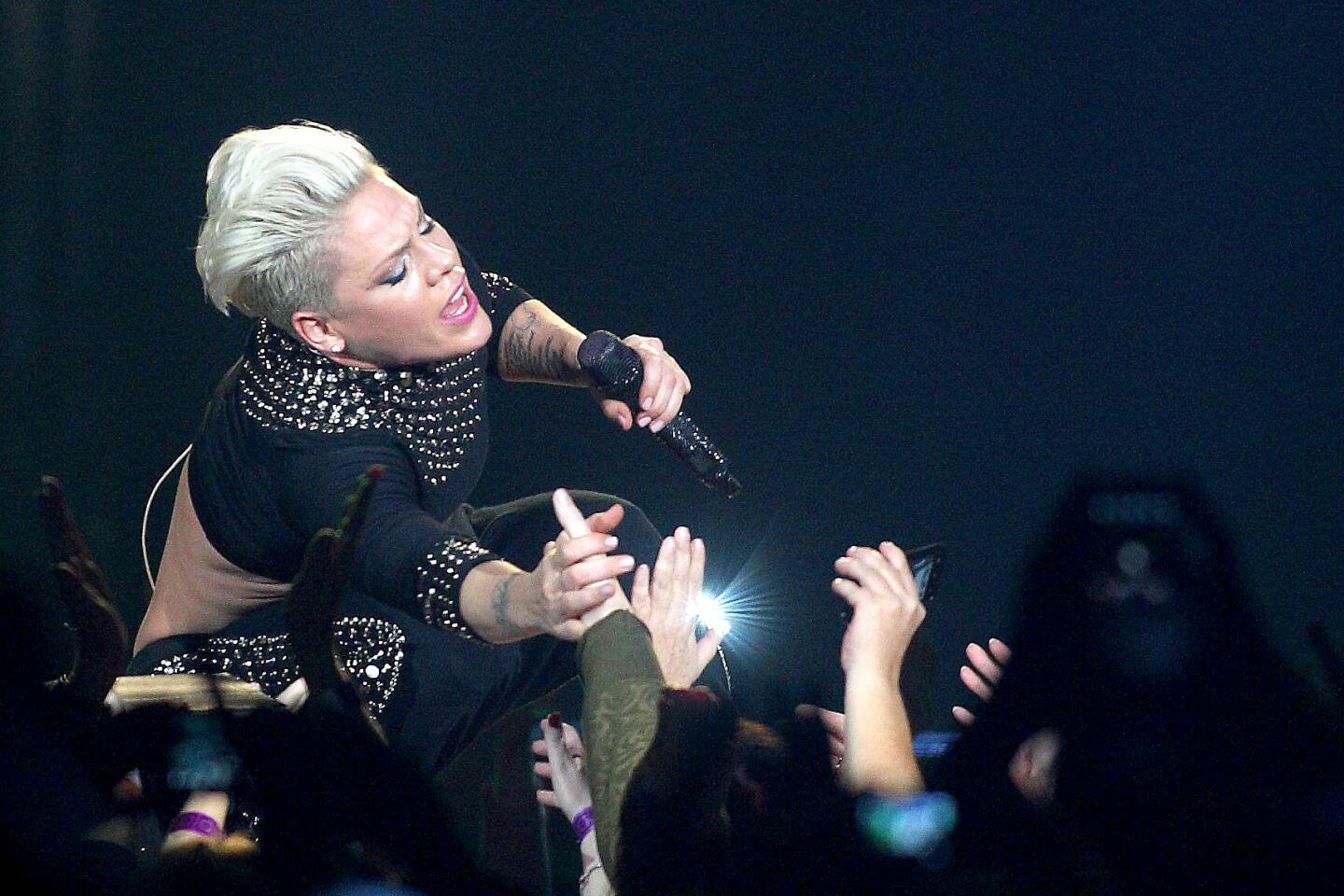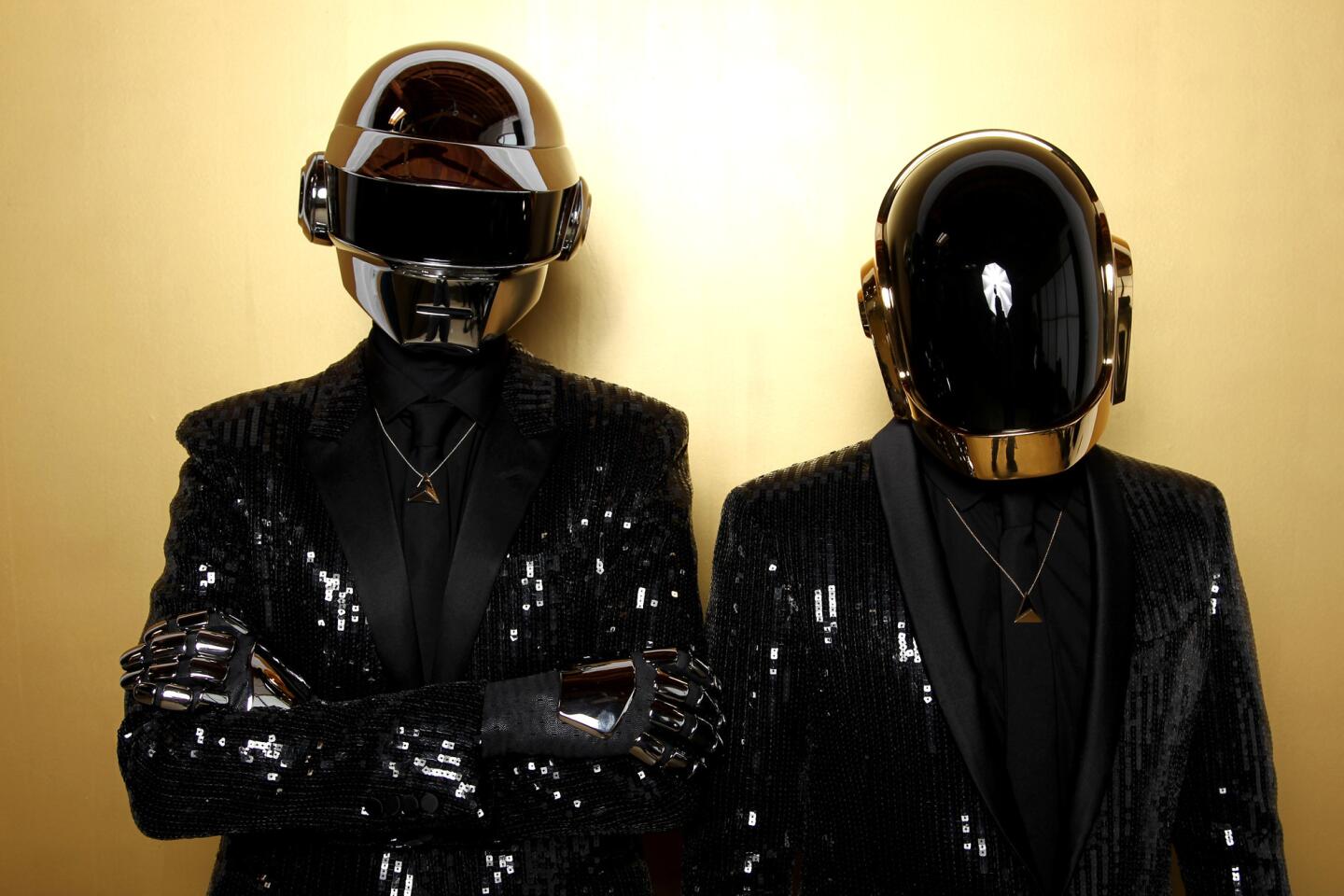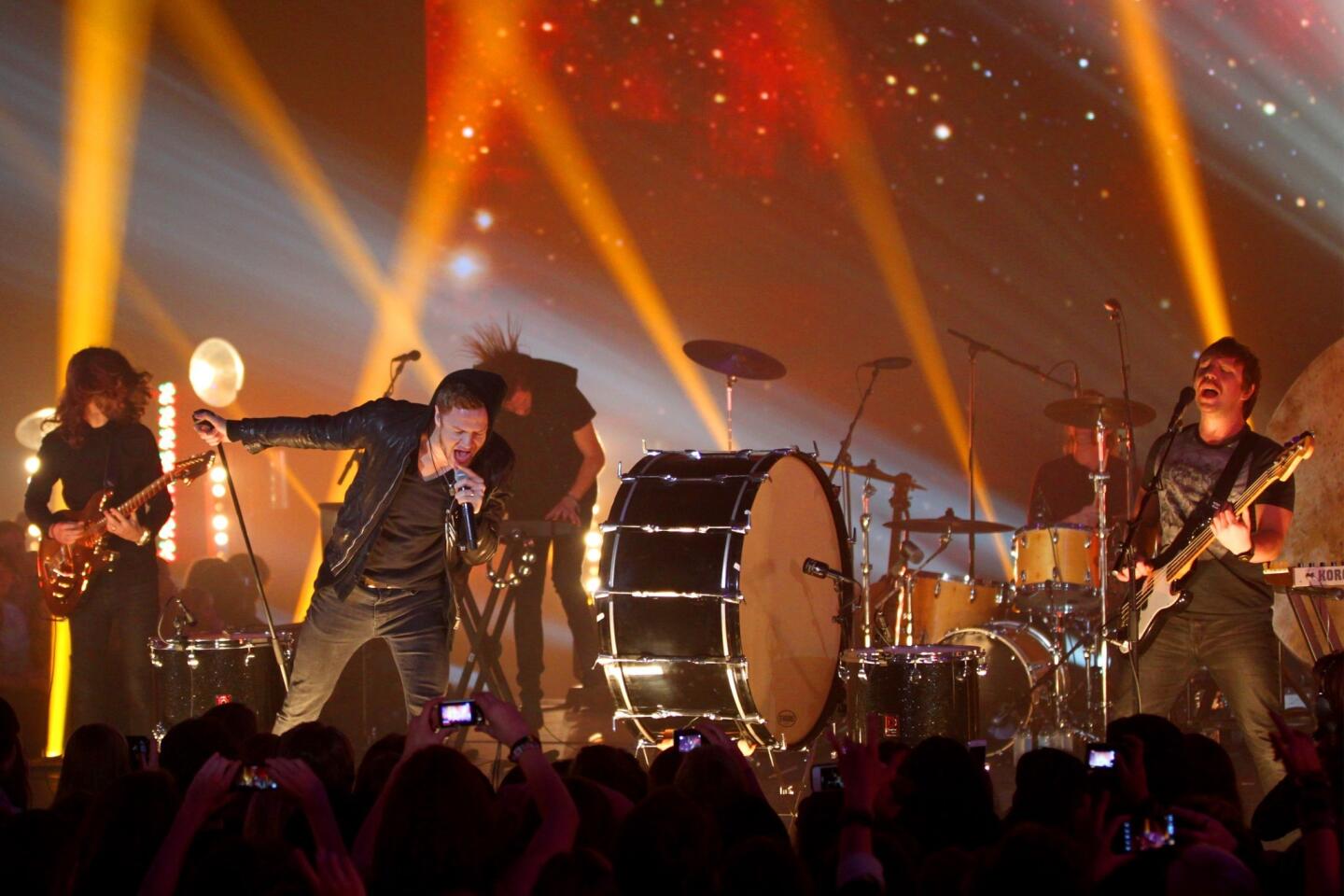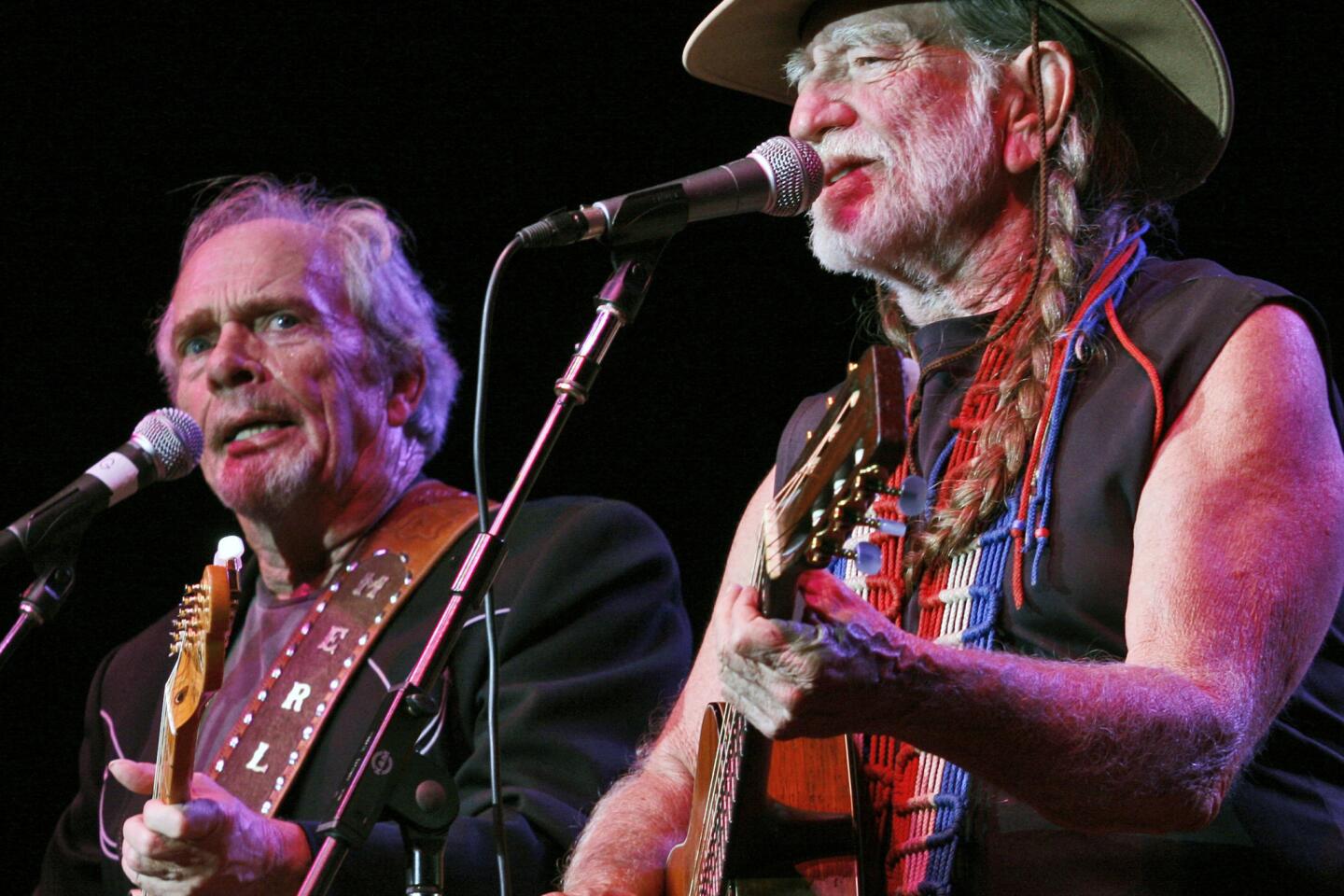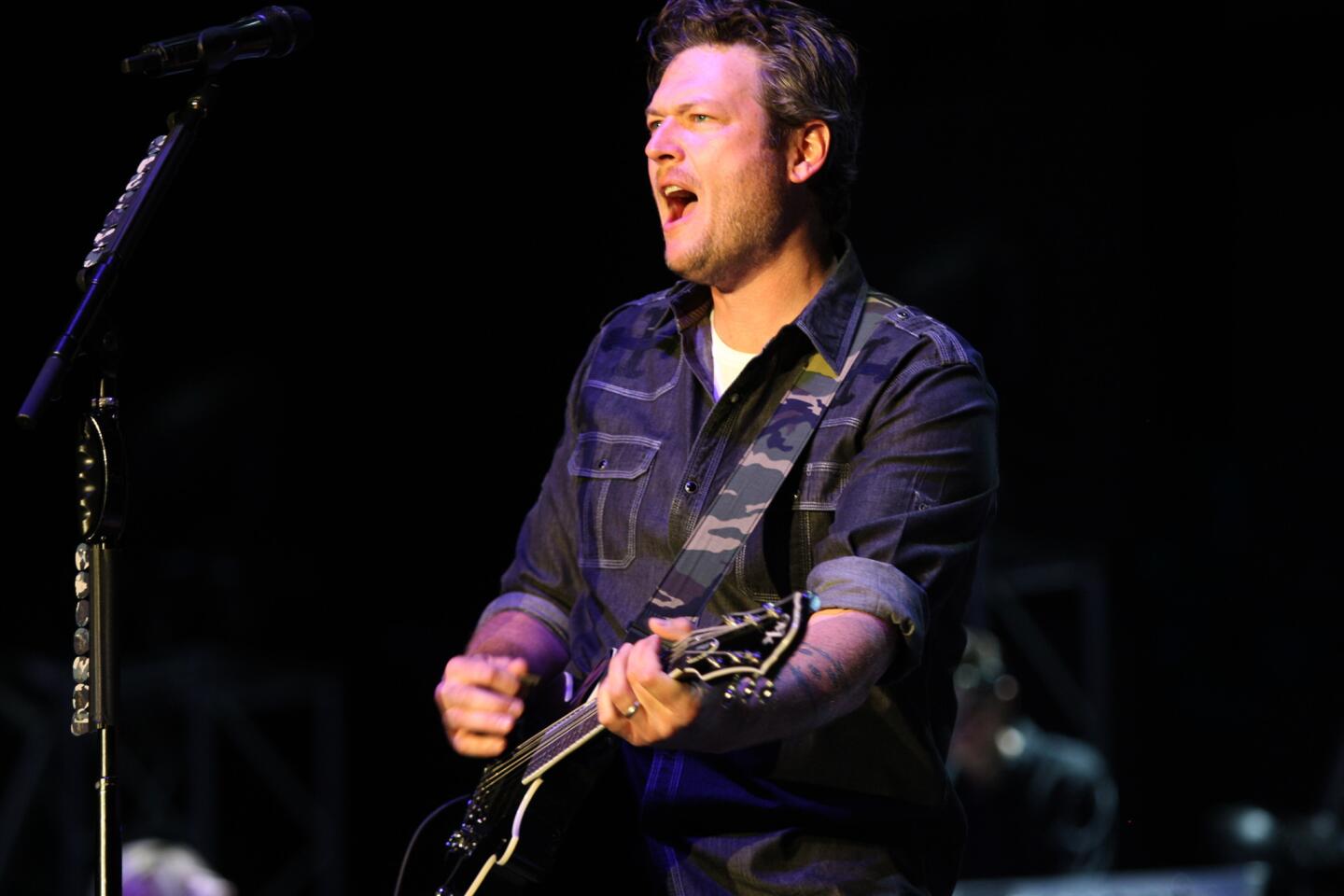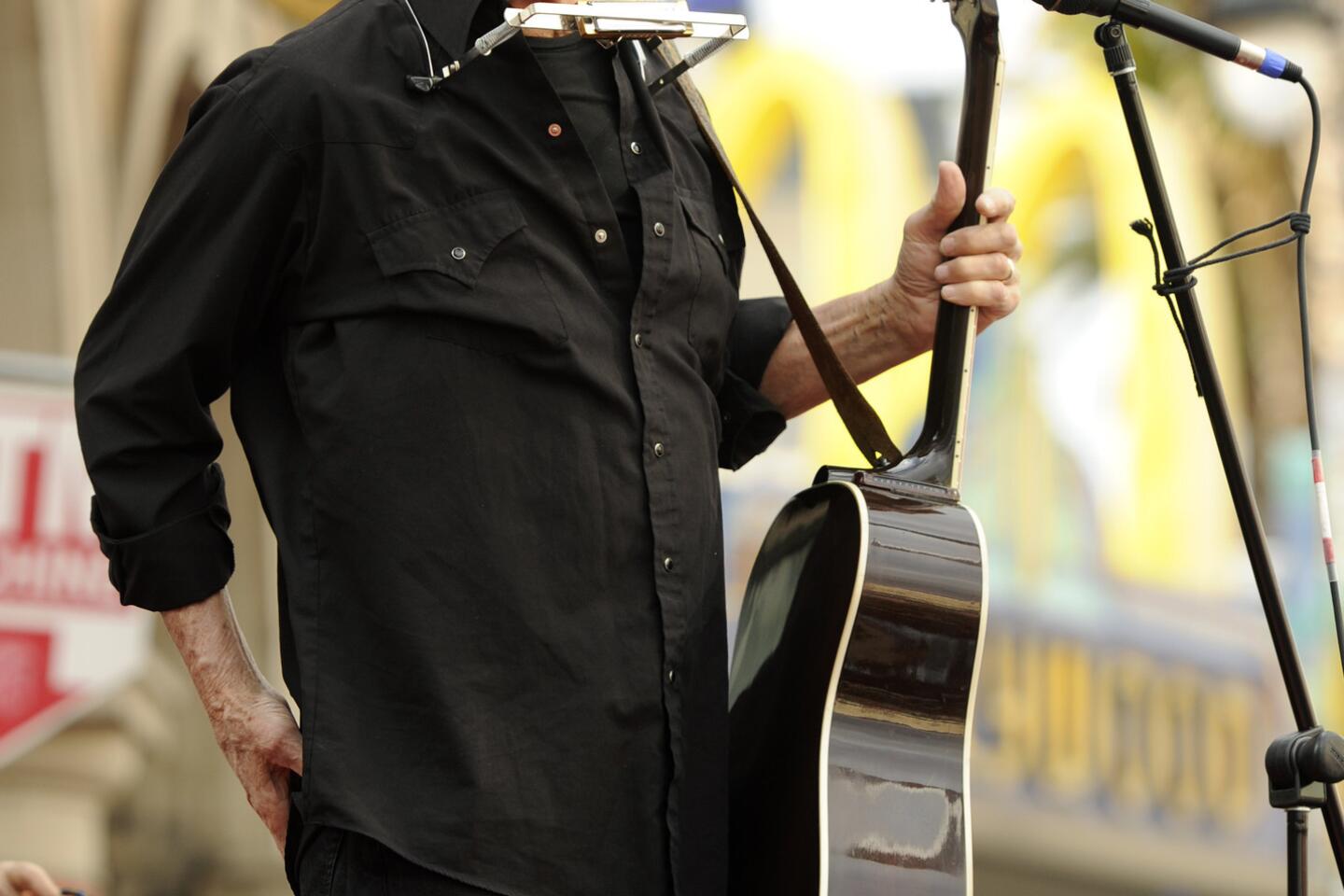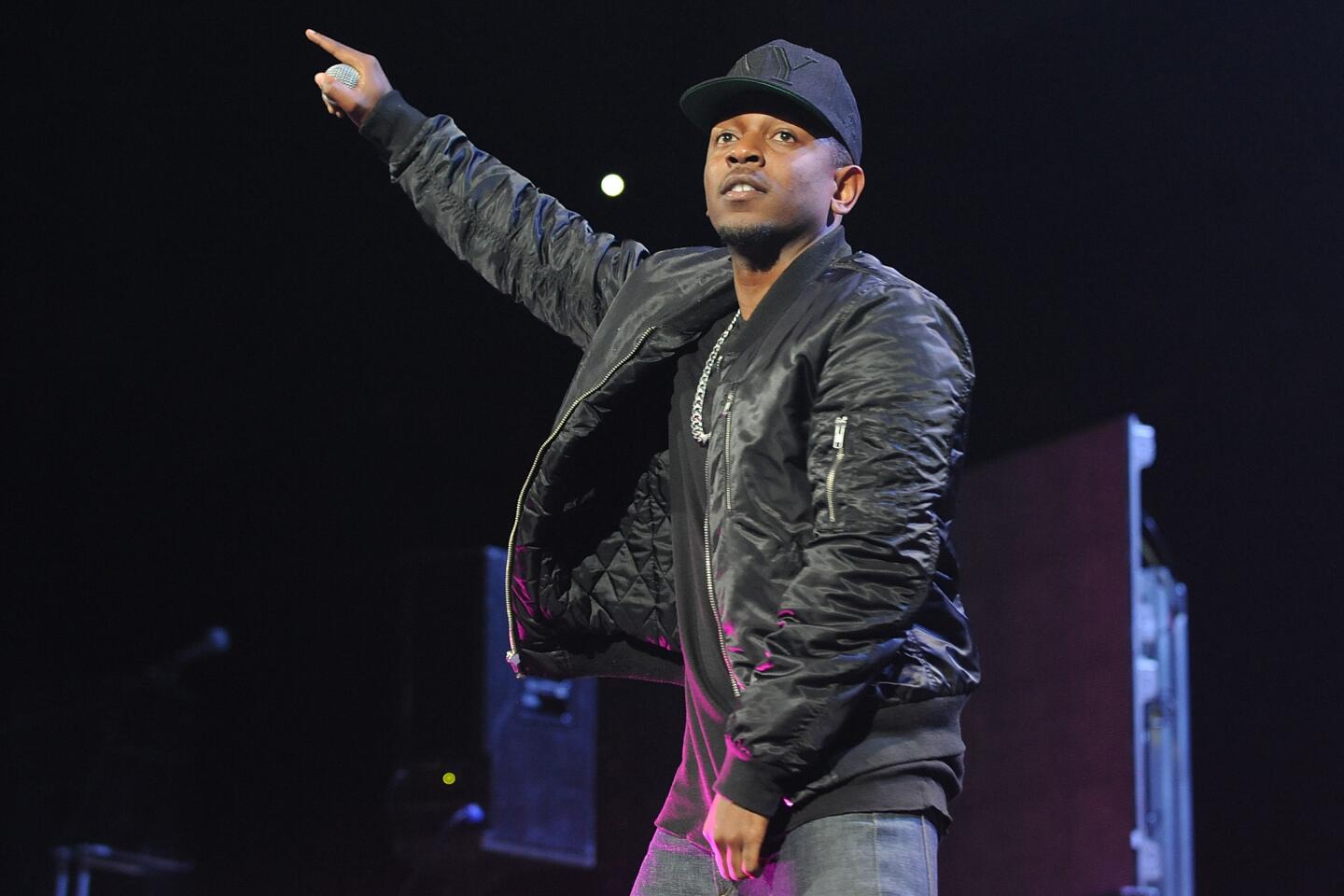Sara Bareilles celebrates Grammy album of the year nomination
- Share via
When the Grammy for album of the year is handed out on Sunday night, it could go to Taylor Swift, Kendrick Lamar, Daft Punk or Macklemore & Ryan Lewis.
It could also go to Sara Bareilles.
The recording academy shocked many in the industry when the singer-songwriter’s third album, “The Blessed Unrest,” was announced as a contender in the race, edging out critically acclaimed works from Justin Timberlake, Kanye West and Kacey Musgraves.
Released in July, the album debuted at No. 2 after middling reviews (Rolling Stone wrote “the songs feel groomed for rom-com soundtracks”), and its anthemic lead single, “Brave,” had yet to conjure the same radio magic of her peppy previous hits such as “King of Anything” and “Love Song.”
Grammys 2014: Full coverage |Concert highlights | Winners timeline
But then came Katy Perry’s “Roar.” Perry’s song, released months after “Brave,” bared a striking sonic similarity to Bareilles’ single and spurred a mini-controversy. While “Roar” was another insta-hit for Perry, “Brave” caught a second wind. “Brave” eventually soared on pop radio, logged more than 1 million downloads and provided the score to a number of commercials and a viral video from a children’s hospital. The song is also up for pop solo performance — against “Roar.”
Bareilles took a break from working on the score for a musical adaptation of the 2007 film “Waitress” and penning a book of personal essays to talk to The Times about the Grammys, that controversy and the impact of “Brave.”
Your nomination surprised many as a left-field pick. How did you react to that kind of criticism?
You know, I think my ego-self might feel slightly offended by how shocked everyone was. But if I’m going to be really real about it, I was just as surprised. I’m not going to diminish the experience by telling myself in some way I don’t deserve it. I wasn’t campaigning … and I don’t want to dishonor the choice by questioning how it happened. It’s an incredible thing, and I’m going to celebrate it.
Comparing your album credits against others in the category, you have the fewest number of collaborators. Was that a conscious decision for this album?
It’s not a conscious decision as much as it is an authentic one. I’ve always felt most comfortable being very involved. I have the tendency to get a little lost in the shuffle if there’s too many cooks in the kitchen. I really thrive on intimacy and that sort of steeped connection. Letting someone in the room at all is a challenge for me. I don’t know if it’s because I’m selfish or stubborn or too scared to be vulnerable in front of so many people. It seemed like this record was a natural progression.
PHOTOS: Daughters of rock stars
“Brave” has such a powerful message, what inspired you to write it?
I wrote this song with [Fun’s] Jack Antonoff. It was an immediate kind of chemistry that we had. At the time there was a lot going on socially and culturally within the gay rights movement. I had a very dear friend struggling with that in a very real way. It’s really a love letter to my friends and definitely informed by what’s happening on a larger scale. It’s about wanting someone to feel safe, and that it’s safe to be authentic.
Did the negativity from the Katy Perry controversy affect you in any way?
To be totally honest I was really disappointed. If anyone knows me at all, my platform and my messaging is positive. It was all really misguided, especially on social media. It really bothers me, it feels like especially among women [performers] there’s this idea that there’s supposed to be competition. I’m supposed to hate what Katy has and vice versa, when I really believe there is room enough for everybody. What she does is so different from what I do. Why can’t we both sing songs that make people feel good and still be friends at the end of the day?
The controversy ultimately proved beneficial for “Brave” though.
All of that … felt like a gift. It was only good for my song. It made people listen to it or rediscover it. It’s only a good thing as an artist who is in contemporary culture to be in the same sentence with Katy Perry. It’s all helpful. I don’t think this is going to be something I’m going to spend too much energy worrying about in the long term.
And now the song is ubiquitous. That must feel great, considering the song’s powerful message.
It’s incredible to see something that you make take on a life of its own. I had always hoped that this song would connect in a big way. But I didn’t quite anticipate this.
More to Read
The biggest entertainment stories
Get our big stories about Hollywood, film, television, music, arts, culture and more right in your inbox as soon as they publish.
You may occasionally receive promotional content from the Los Angeles Times.
